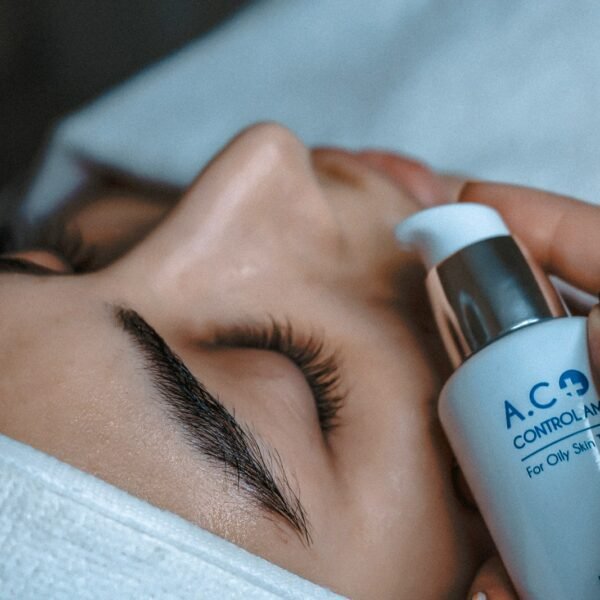Aging is a beautiful journey, but let’s be honest—most of us want to hold on to that youthful glow for as long as possible.
If you’re anything like me, you’ve probably tried countless products in search of that magic elixir to smooth out fine lines and keep your skin radiant.
Well, I’m here to let you in on a little secret: Rosehip oil. This natural gem has been a game-changer in my skincare routine, and I’m excited to share all its benefits with you.
In this guide, I’ll walk you through everything you need to know about rosehip oil, from its anti-aging benefits to how you can easily incorporate it into your daily skincare routine.
What is Rosehip Oil?
Rosehip oil is a natural oil extracted from the seeds of wild rose bushes, most commonly Rosa canina.
Known for its vibrant orange hue, this oil has been cherished for centuries, with its roots tracing back to ancient civilizations like the Egyptians, Mayans, and Native Americans, who used it for its healing properties.
Fast forward to today, and rosehip oil has become a skincare staple for those seeking to maintain youthful, radiant skin.
What makes rosehip oil so special? It’s not just a trend—it’s a timeless remedy that has stood the test of time.
Unlike other oils, rosehip oil is packed with skin-loving nutrients that work wonders for aging skin.
Whether you’re looking to soften fine lines, even out skin tone, or simply nourish your skin, rosehip oil is the natural solution you’ve been searching for.
Nutrient Breakdown
Rosehip oil owes its powerful anti-aging properties to its rich nutrient profile. Here’s a closer look at the key ingredients that make this oil so effective:
- Vitamin A (Retinoids): Helps to promote cell turnover, reducing the appearance of fine lines and wrinkles while improving skin texture.
- Vitamin C: Known for its brightening effects, vitamin C helps to even out skin tone, reduce hyperpigmentation, and boost collagen production for firmer skin.
- Essential Fatty Acids (Omega-3, Omega-6, Omega-9): These fatty acids deeply hydrate the skin, improve elasticity, and help repair the skin’s barrier, preventing moisture loss.
- Antioxidants: Rosehip oil is rich in antioxidants, which protect the skin from environmental damage caused by free radicals, slowing down the aging process.

How Does Rosehip Oil Fight Aging?
Rosehip oil is a true powerhouse when it comes to fighting the visible signs of aging.
Its unique composition allows it to target several skin concerns simultaneously, making it a go-to solution for those looking to maintain a youthful appearance. But how exactly does it work?
- Reduces Wrinkles and Fine Lines:
Rosehip oil is rich in retinoids, which are derived from vitamin A. Retinoids are well-known for their ability to accelerate cell turnover, meaning they help shed old, dead skin cells and reveal fresh, new skin underneath. This process naturally smooths out fine lines and wrinkles, giving your skin a more youthful, plump appearance.
- Fades Hyperpigmentation:
If you struggle with dark spots or uneven skin tone, rosehip oil’s high vitamin C content is here to help. Vitamin C is a potent antioxidant that brightens the skin by reducing melanin production, which is responsible for dark spots. Over time, regular use of rosehip oil can lead to a more even, radiant complexion.
- Boosts Collagen Production:
Collagen is the protein responsible for keeping our skin firm and elastic. As we age, collagen production slows down, leading to sagging and the formation of wrinkles. The vitamin C in rosehip oil not only fades dark spots but also stimulates collagen production, helping to restore skin’s firmness and elasticity.
- Promotes Cell Regeneration:
The essential fatty acids in rosehip oil, such as omega-3 and omega-6, are vital for skin regeneration. They help repair damaged skin cells and strengthen the skin’s barrier, locking in moisture and keeping your skin hydrated. Hydrated skin is more resilient and less prone to showing signs of aging.
Scientific Backing
The anti-aging benefits of rosehip oil aren’t just anecdotal—they’re backed by science.
A study published in the National library of medicine found that regular use of rosehip oil significantly improved the skin’s moisture levels, elasticity, and texture, all of which are crucial for maintaining a youthful appearance.
Additionally, a review of the study by Front Pharmacology, highlighted the oil’s ability to boost collagen synthesis, which plays a critical role in reducing the depth and severity of wrinkles.
Experts also vouch for rosehip oil’s effectiveness.
Dermatologists often recommend it as a natural alternative to harsher anti-aging treatments, citing its gentle yet potent ability to rejuvenate the skin.
So, whether you’re looking to smooth out fine lines, fade dark spots, or simply nourish your skin, rosehip oil is a proven, natural solution worth adding to your skincare routine.
Benefits of Rosehip Oil Beyond Anti-Aging
While rosehip oil is celebrated for its anti-aging properties, its benefits extend far beyond just reducing wrinkles and fine lines.
Let’s explore the other remarkable ways this natural oil can enhance your skin’s health and appearance.
Additional Skin Benefits
- Scar Reduction:
Rosehip oil is a powerful ally in reducing the appearance of scars. Whether from acne, surgery, or stretch marks, its rich content of essential fatty acids and vitamins promotes skin regeneration, helping to fade scars over time. The oil’s ability to deeply penetrate the skin allows it to deliver nutrients directly to damaged tissue, encouraging faster healing.
- Hydrating Dry Skin:
If you struggle with dry or flaky skin, rosehip oil is a game-changer. It’s loaded with omega-3, 6, and 9 fatty acids, which are essential for maintaining healthy skin barriers. These fatty acids lock in moisture, keeping your skin soft, smooth, and hydrated. Its lightweight texture also means it won’t leave your skin feeling greasy, making it perfect for daily use.
Versatility for Different Skin Types
One of the standout features of rosehip oil is its versatility. It’s suitable for all skin types, making it a staple in any skincare routine.
- Sensitive Skin:
Rosehip oil is gentle enough for sensitive skin. Its anti-inflammatory properties help to calm irritation and reduce redness, making it a soothing option for those with easily irritated skin.
- Acne-Prone Skin:
Contrary to what you might expect, rosehip oil is beneficial for acne-prone skin. It’s non-comedogenic, meaning it won’t clog pores. Additionally, its natural astringent properties help tighten pores and minimize breakouts, while the vitamin A content helps to reduce acne scars and improve skin texture.

How to Use Rosehip Oil for Anti Aging in Your Skincare Routine
Application Tips
Morning Use:
After cleansing, apply a few drops of rosehip oil to your face. Gently press it in, focusing on fine lines and wrinkles.
The oil absorbs quickly, making it an excellent base for makeup or sunscreen.
Remember to follow with SPF, as rosehip oil’s vitamin A can increase sun sensitivity.
Evening Use:
In the evening, after cleansing and applying serums, warm a few drops of rosehip oil between your hands and press it into your skin.
This allows the oil’s nourishing properties to work overnight, aiding in skin regeneration and hydration.
Combining with Other Products
Moisturizers:
Use rosehip oil over a moisturizer to enhance hydration. Choose moisturizers with hyaluronic acid or ceramides for added moisture retention.
Serums:
In the morning, pair rosehip oil with a vitamin C serum for brightening and extra antioxidant protection. At night, consider using a gentle retinol serum if suitable, with rosehip oil helping to soothe any resulting dryness.
Facial Oils:
For extra nourishment, layer rosehip oil with other facial oils like jojoba or argan. This combination seals in moisture and boosts anti-aging benefits.
Potential Side Effects and Precautions
While rosehip oil offers numerous benefits, it’s important to be aware of potential side effects and take precautions to ensure its safe use. Here’s what you need to know to make the most of this wonderful oil.
Common Concerns
- Possible Irritation or Allergic Reactions:
Although rosehip oil is generally well-tolerated, some individuals might experience mild irritation or an allergic reaction.
If you have sensitive skin or are prone to allergies, it’s wise to conduct a patch test before incorporating the oil into your routine. To perform a patch test:
- Apply a small amount of rosehip oil to a discreet area of the skin, such as the inside of your wrist or behind your ear.
- Wait 24 hours and observe for any signs of redness, itching, or swelling. If no adverse reactions occur, it’s likely safe to use the oil on your face.
- Sensitivity to Sunlight:
As with many products containing vitamin A, rosehip oil can increase your skin’s sensitivity to sunlight.
To minimize this risk, always apply rosehip oil in the evening or ensure you use a broad-spectrum sunscreen during the day. This will protect your skin and enhance the oil’s effectiveness.
Conclusion
Incorporating rosehip oil into your skincare routine can be a game-changer, offering a natural and effective solution to combat signs of aging.
Its rich blend of essential fatty acids, vitamins, and antioxidants works harmoniously to reduce wrinkles, even out skin tone, and hydrate deeply.
By embracing this powerhouse oil, you’re not only nurturing your skin with time-tested ingredients but also enhancing your overall skincare regimen with a touch of nature’s best.
As you embark on this journey to age gracefully, remember that rosehip oil is here to support you every step of the way. Embrace the process and enjoy the radiant, youthful skin that comes from this natural remedy.
I encourage you to try rosehip oil and see the difference it can make for yourself.
Feel free to share your experiences or ask any questions you may have in the comments section—I’d love to hear how rosehip oil is working for you!





Leave a Reply